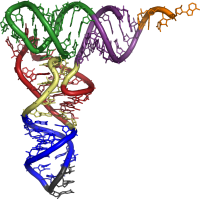Technical texts: Linguistic correction versus professional slang Thread poster: Pablo Bouvier
|
|---|
What do you think?
Should we as translators give preference to linguistic correction or to professional slang in technical texts?
I have seen several responses in KudoZ who have made me reflect on this topic, but without coming to any conclusion.
| | | |
I think that in open questions of this type, the purpose of the translation should be the deciding factor, and we may be guided by the needs of the client and the translation user(s), not letting these be overriden by our own preferences.
| | | | Yaotl Altan 
Mexico
Local time: 17:59
Member (2006)
English to Spanish
+ ...
| Compatibility | Feb 22, 2008 |
Pablo Bouvier wrote:
What do you think?
Should we as translators give preference to linguistic correction or to professional slang in technical texts?
I have seen several responses in KudoZ who have made me reflect on this topic, but without coming to any conclusion.
Are they incompatible?
| | | | Anne Bohy 
France
Local time: 01:59
English to French
| In French, there are only few IT words which don't have a translation | Feb 23, 2008 |
If you understand what you are translating, and not simply rely on the jargon that you may find on the Internet, most words have a translation. And you shouldn't fear rewriting completely some sentences, to make them understandable in French. However, in IT area for instance, you may use different words depending on the end-user, whether he is used to the jargon, or not. A good practice is often to give a French translation and mention the original English terms inside parentheses when appropria... See more If you understand what you are translating, and not simply rely on the jargon that you may find on the Internet, most words have a translation. And you shouldn't fear rewriting completely some sentences, to make them understandable in French. However, in IT area for instance, you may use different words depending on the end-user, whether he is used to the jargon, or not. A good practice is often to give a French translation and mention the original English terms inside parentheses when appropriate. Personnally, I hate to write computer jargon, although I have used it for 30 years when communicating with other IT engineers.
[Edited at 2008-02-23 00:26] ▲ Collapse
| | |
|
|
|
Ken Cox 
Local time: 01:59
German to English
+ ...
| The overriding objective... | Feb 23, 2008 |
in technical texts is to convey information clearly and unambiguously. Grammatical and linguistic correctness is of course always nice, but clarity is more important. If by 'technical slang' you mean jargon, IMO you have to be guided by what is commonly used in the field in question and the intended readership, as GoodWords suggested. There's no pat answer.
As an aside, English-speaking engineers (and maybe those of other language groups as well) have never (in recent history) been ... See more in technical texts is to convey information clearly and unambiguously. Grammatical and linguistic correctness is of course always nice, but clarity is more important. If by 'technical slang' you mean jargon, IMO you have to be guided by what is commonly used in the field in question and the intended readership, as GoodWords suggested. There's no pat answer.
As an aside, English-speaking engineers (and maybe those of other language groups as well) have never (in recent history) been noted for their language skills, and a lot technical text being written these days by nominally native English speakers is poor to awful by most conventional linguistic standards (but then so is a lot of vernacular non-technical English). I'm not arguing for blind imitation or acceptance of such style, but you don't want to write something that's such impeccably correct English that it alienates the intended audience.
[Edited at 2008-02-23 00:55] ▲ Collapse
| | | | | Agree with Ken | Feb 23, 2008 |
Ken Cox wrote: The overriding objective...
in technical texts is to convey information clearly and unambiguously. Grammatical and linguistic correctness is of course always nice, but clarity is more important.
I agree with Ken. When translating technical stuff, and specially in cases of potentially dangerous equipments or operations, I set clearness as my priority, and do my best with linguistics afterwards.
Sometimes it means to rewrite a sentence to make it sound familiar and "nitid" to the reader (as bohy says), and sometimes (or more often than that) it takes using a linguistically "inaccurate" term, but perfectly clear for such field and reader.
...I'm not arguing for blind imitation or acceptance of such style, but you don't want to write something that's such impeccably correct English that it alienates the intended audience.
I'm not sure about this point, Ken. What is the problem with being clear and "stylish" at the same time? As long as we keep the goal (unambiguousness), a good style within the general frame of the speciality field does not hurt anyone, in my opinion.
Good weekend to all,
Andrés
| | | | Ken Cox 
Local time: 01:59
German to English
+ ...
| @ Andre & Leticia | Feb 23, 2008 |
[/quote]
I'm not sure about this point, Ken. What is the problem with being clear and "stylish" at the same time? As long as we keep the goal (unambiguousness), a good style within the general frame of the speciality field does not hurt anyone, in my opinion.
Apparently I didn't express myself clearly ( ). What I meant is that I'm not in favour of copying the style of what passes for English in a ... See more ). What I meant is that I'm not in favour of copying the style of what passes for English in a ... See more [/quote]
I'm not sure about this point, Ken. What is the problem with being clear and "stylish" at the same time? As long as we keep the goal (unambiguousness), a good style within the general frame of the speciality field does not hurt anyone, in my opinion.
Apparently I didn't express myself clearly ( ). What I meant is that I'm not in favour of copying the style of what passes for English in a lot of poorly written texts just so the reader will feel comfortable, but at the same time I don't think you should insist on writing according to severe grammatical standards at the expense of ease of understanding by a particular audience (which may be accustomed to a lot of grammatically dubious usage). In any case, I'm all in favour of good style -- and good style in technical writing is anything that promotes clarity. ). What I meant is that I'm not in favour of copying the style of what passes for English in a lot of poorly written texts just so the reader will feel comfortable, but at the same time I don't think you should insist on writing according to severe grammatical standards at the expense of ease of understanding by a particular audience (which may be accustomed to a lot of grammatically dubious usage). In any case, I'm all in favour of good style -- and good style in technical writing is anything that promotes clarity. ▲ Collapse
| | | |
Ken Cox wrote:
I'm not sure about this point, Ken. What is the problem with being clear and "stylish" at the same time? As long as we keep the goal (unambiguousness), a good style within the general frame of the speciality field does not hurt anyone, in my opinion.
Apparently I didn't express myself clearly ( ). What I meant is that I'm not in favour of copying the style of what passes for English in a lot of poorly written texts just so the reader will feel comfortable, but at the same time I don't think you should insist on writing according to severe grammatical standards at the expense of ease of understanding by a particular audience (which may be accustomed to a lot of grammatically dubious usage). In any case, I'm all in favour of good style -- and good style in technical writing is anything that promotes clarity. [/quote] ). What I meant is that I'm not in favour of copying the style of what passes for English in a lot of poorly written texts just so the reader will feel comfortable, but at the same time I don't think you should insist on writing according to severe grammatical standards at the expense of ease of understanding by a particular audience (which may be accustomed to a lot of grammatically dubious usage). In any case, I'm all in favour of good style -- and good style in technical writing is anything that promotes clarity. [/quote]
OK, I get it now and I agree with you!
Take care,
Andrés
| | |
|
|
|
ivo abdman
Indonesia
Local time: 06:59
English to Indonesian
+ ...
| the objective is message could be captured clearly | Feb 24, 2008 |
the two component of translation preference
1. meaning
2. style in target language
but please do not toooo clear
| | | | Vito Smolej
Germany
Local time: 01:59
Member (2004)
English to Slovenian
+ ...
SITE LOCALIZER | Bootstrapping problem. | Feb 24, 2008 |
Point I: the overriding objective in technical texts is to convey information clearly and unambiguously.
Point II: ... engineers ... have never ... been noted for their language skills
So what am I supposed to do, if I (due to Point II) don't even get the information in the source clearly and unambiguously (sg).
| | | | Pablo Bouvier 
Local time: 01:59
German to Spanish
+ ...
TOPIC STARTER | mmhhhh, I guess yes... | Feb 24, 2008 |
In Spain we habitually use the horrible anglicism 'flashear' (to flash a memory card).
I have seen translations by far more elegant from a stylistic point of view for this. However, such translations ('updating the firmware' or alike) may be (or not) correct from a technical point of view .
If you are in a technical environment, everybody will understand ‘flashear’ in Spain; not so sure about the other translations. But, I guess it still will be an horrible tran... See more In Spain we habitually use the horrible anglicism 'flashear' (to flash a memory card).
I have seen translations by far more elegant from a stylistic point of view for this. However, such translations ('updating the firmware' or alike) may be (or not) correct from a technical point of view .
If you are in a technical environment, everybody will understand ‘flashear’ in Spain; not so sure about the other translations. But, I guess it still will be an horrible translation from a stylistic point of view.
However, the verb 'flashear' will give technicians precise information about the saving process:
a) it is done in one go.
b) information is saved in a special kind of memory cards (flash memory cards)
But, nothing else.
Yaotl Altan wrote: Pablo Bouvier wrote:
What do you think?
Should we as translators give preference to linguistic correction or to professional slang in technical texts?
I have seen several responses in KudoZ who have made me reflect on this topic, but without coming to any conclusion.
Are they incompatible? ▲ Collapse
| | | | | No rule (Fortunately) | Feb 25, 2008 |
Maybe English speakers don't know how badly speaking are Spanish scientists and engineers. The reason is that English is the language of science, and in informal conversation people use many English words and even worse, literal and horrible translations of English. The result is a jargon not suitable to be written, but sometimes this contaminates written Spanish texts too.
Pablo Bouvier wrote:
What do you think?
Should we as translators give preference to linguistic correction or to professional slang in technical texts?
I have seen several responses in KudoZ who have made me reflect on this topic, but without coming to any conclusion.
Not coming to any conclusion because there is not any rule. We just need common sense and a very good knowledge of the register we have to use in the target document. I'll write a couple of examples about biochemical experiments:
"Pellet the cells at 1200 rpm for 5 min" People in the Spanish lab would talk something about "peletear las células a 1200 rpm 5 minutos". I have to recognise (ashamed) that when working in the lab I have used the horrible word "peletear", but I would never use it in written Spanish, I think it would not be acceptable.
"Pipette 1 ml of reagent" => "Pipetear 1 ml del reactivo". I would never use the word "pipetear" in an Spanish Ph.D. thesis, but if it were a protocol to be performed in an experiment, somtehing the scientist or lab technician has on the workbench, may be I would use that word or may be I would use a better one as "añadir", but never something like "tomar con la pipeta". In the protocol of an experiment everything must be not only clear, but also as simple as possible, because sometimes people may be working very fast while reading it. IMHO "pipetear" is not that bad to be written in a paper on the workbench, while unacceptable in a more formal text.
Different contexts, different environments, different registers, different translation. And... It's great! this makes translation more difficult for computers.:wink:
| | |
|
|
|
| Pay attention to context and stay at safe side | Feb 25, 2008 |
I will not generalize, I will just talk about translation/interpretation around oil- and gas-wells.
I guess, the style very depends on situation (as usually).
If original text has slang in it and is addressed to crew members or other immediate colleagues fiddling around the rig – you better find adequate, but “easy” worlds to translate original slang.
If you deal with a kind of technical instruction, regulations, procedure description and any othe... See more I will not generalize, I will just talk about translation/interpretation around oil- and gas-wells.
I guess, the style very depends on situation (as usually).
If original text has slang in it and is addressed to crew members or other immediate colleagues fiddling around the rig – you better find adequate, but “easy” worlds to translate original slang.
If you deal with a kind of technical instruction, regulations, procedure description and any other kind of “official” document, than may have legal, financial, HSE-, HR- and other - let us say - indirect non-technological “after-effects”, - stay away from any slang and do your best to generate a text wit minimal chances for misunderstanding, misinterpretation etc. causing further claims, complaints, paralegal and other issues…
A pitiful sample (may be not 100% matching the topic, but instructive):
At a Chevron Processing Plant (Tengiz, Kazakstan) a very experienced and very strong linguist was fired because he had bad luck truing to get his translation as short as the original:
Q: What you gona use to pressure-test the line?
A: Oil.
Trick-Track, Dudelsack - that was his last day in the project, because in his original Russian answer the local engineer told “masslo” (in English it is “oil”) instead of saying “gidravlicheskoye masslo” (“hydraulic oil”).
When engineers heard “Oil” in English interpretation of reply, they thought, the pressure test will be conducted not with hydraulic oil, but with Tengiz crude oil containing circa 18% of hydrogen sulphide (an absolute killer, horribly toxic and explosive) and because of such little trifle a good interpreter/translator lost his job and reputation.
It would not happen if he, instead of following the original short and allmost slang wording, would spend few microseconds to evaluate the situation, so instead of generating a possibility of a good international technogeneous ecocatastrophe, he would add just one word and end up with a safe term “hydraulic oil” instead of just “oil”…
…although from formal point of view his version of the answer was 100% correct: one word in Russian (the notorious “masslo”) – one word in English (“oil” with its notorious polysemy, bringing a good employ to labor registry office).
Easy does it! ▲ Collapse
| | | | To report site rules violations or get help, contact a site moderator: You can also contact site staff by submitting a support request » Technical texts: Linguistic correction versus professional slang | TM-Town | Manage your TMs and Terms ... and boost your translation business
Are you ready for something fresh in the industry? TM-Town is a unique new site for you -- the freelance translator -- to store, manage and share translation memories (TMs) and glossaries...and potentially meet new clients on the basis of your prior work.
More info » |
| | Wordfast Pro | Translation Memory Software for Any Platform
Exclusive discount for ProZ.com users!
Save over 13% when purchasing Wordfast Pro through ProZ.com. Wordfast is the world's #1 provider of platform-independent Translation Memory software. Consistently ranked the most user-friendly and highest value
Buy now! » |
|
| | | | X Sign in to your ProZ.com account... | | | | | |













